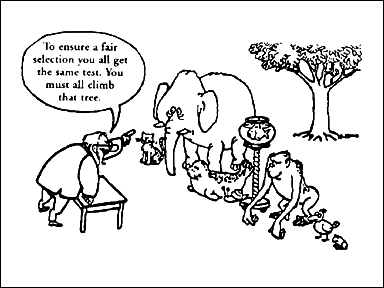14th June 2016 Church News.

It is a well known fact that most candidates are hired for the experience on their CV (particularly in the world of technology) rather than the overall impact they personally will have on the role, team and business. Hiring managers have a tendency to be influenced to hire by a candidate’s potential ability to code beautifully, rather than worrying about the fact that their new hire will cause disruption by not being the team player, who is able to hit deadlines and prioritise workload, which are the soft skills absolutely required to deliver the overall project.

Some candidates interview perfectly. They are well prepared with all the right examples to satisfy the most rigorous competency based interview… but crumble at the first sign of pressure in a real working environment, are actually unable to delegate, confront issues, gain co-operation or influence others, use their initiative or in reality possess any of the hidden soft skills that will make them real stars in an organisation. Other really great candidates don’t interview particularly well or have the most amazing CV but would really make a difference to an organisation if they are not screened out too early by a poor recruitment process which doesn’t look past the superficial.
And how many times do people involved in the hiring process have very differing views about what makes a good candidate for a particular role. Primarily this lack of consensus is created by the role not being properly defined at the outset in terms of the individual behaviours and operating style that will enable the new hire to really succeed in the position. Most job descriptions are cookie cutter templates that have a list of standard corporate Barnum statements that are no use in trying to determine who is the best candidate to thrive in a specific role in an organisation’s unique culture. Just because a candidate operates brilliantly in one organisation doesn’t mean they will do the same in another. Just think of the star footballer who is the leading goal scorer in one club and then transfers to another for vast amounts of money amid much hype, only to fail miserably under a new management regime where the style of play and leadership just doesn’t suit them.
So how can you hire for the right experience and behaviour for your organisation and never need to fire again?
From over thirty five years in the recruitment business my experience has repeatedly shown that if you spend time upfront planning the recruitment strategy and role definition, the improved success rate in hiring and retaining the right candidate is marked. The starting point is absolutely to get consensus across the group of individuals involved in the recruitment process of what behaviours, not just functional skills, are really important by profiling the role. This then highlights where there could be conflicting opinion between interviewers later in the process about who is the best fit candidate. By acknowledging and discussing these differing views, a balanced job behaviour profile can be created. This profile can then be utilised to analyse the individual candidate psychometric results and assess the areas of behavioural strengths and weaknesses. A more objective view can then be made about who to bring to your shortlist and the specific areas to focus on when interviewing. A good psychometric tool will provide you with a structured candidate “fit to role” report together with a list of questions you can ask in order to probe into areas that show potential weakness as well as discuss the areas of strength as well. Makes sense doesn’t it to help the interviewer as much as possible to get the right result?
So if you currently struggling to identify the right candidate for a key role, I believe (and statistics prove) that by taking the right recruitment approach, using objective as well as subjective methods to assess candidates, you can ensure all your hires are star performers.

For more information about how psychometric profiling is used as part of our Talent LifeCycle (TLC) Retained Search Service contact us on 01622 675126 or tlc@church-int.com